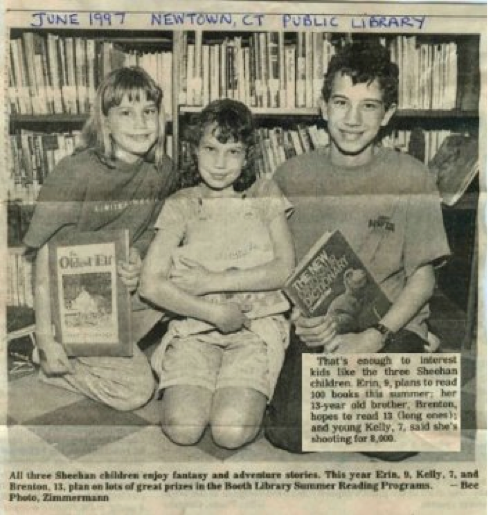Parents often say that their child has a unique personality. Even from infancy, babies seem to have their own temperaments, likes, dislikes and specific ways of interacting with the world. While adults think children have distinct qualities, do young children see themselves as having their own personality? How do children view themselves as people?
Before children can even reflect on who they are as people, they must first be able to recognize that they are their own person and not just an extension of their caregiver. From their birth, infants are wholly dependent on their caregivers. It’s not until later in infancy that they discover that they have an identity separate from their caregiver. If you have an 8- to 15-month old infant who experiences separation anxiety, you’ve already witnessed your infant becoming self-aware.
To see whether toddlers are self-aware, researchers often perform the Rouge Test – they put a small red mark on the child’s forehead while she is in front of the mirror to see whether she touches her own head (and therefore is self-aware) or touches the mirror (which suggests she thinks her image is another child). Research shows that children start to succeed on this test around 18-months. By about 2-years of age, toddlers have clear self-awareness. They can identify themselves in pictures, they use first person language (“mine!”) and they start to express self-conscious emotions. For example, it’s not until about 2-years that children start to feel shame, which explains why kids often feel no remorse for doing things like this.
Once infants realize they are indeed separate entities from their parents, they begin to develop a self concept: they see themselves as individuals who have certain physical social and internal characteristics. For pre-school and elementary school children, this often consists of concrete, observable characteristics like “I have brown hair” and “I have a brother and sister.” These characteristics also tend to be positive – sometimes unrealistically positive. A good example is a personal anecdote from when my sibling and I were interviewed by the local newspaper about a summer reading program. At age 7, I told the reporter I was planning to read 8,000 books that summer. Clearly, I thought highly of my reading abilities.

“That’s enough to interest kids like the three Sheehan children. Erin, 9, plans to read 100 books this summer; her 13-year old brother, Brenton, hopes to read 13 (long ones); and young Kelly, 7, said she’s shooting for 8,000.”
Children develop more realistic self-perceptions later in elementary and middle school and also start to develop more complex personas, like realizing they can be both mean and nice in different situations. So while elementary and middle childhood consists of children developing an understanding of their own individual qualities, much of the first years of life involves infants simply recognizing they are their own entities. And by the time they realize they are their own person, they usually think of themselves as being pretty awesome.
Parents – if you think your child is being a bit egotistical, know that they are simply developing their personality. With more experience, they’ll begin to realize they cannot actually read 8,000 books in one summer.
